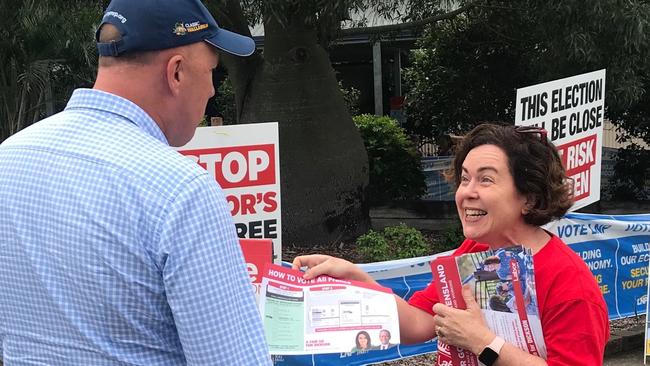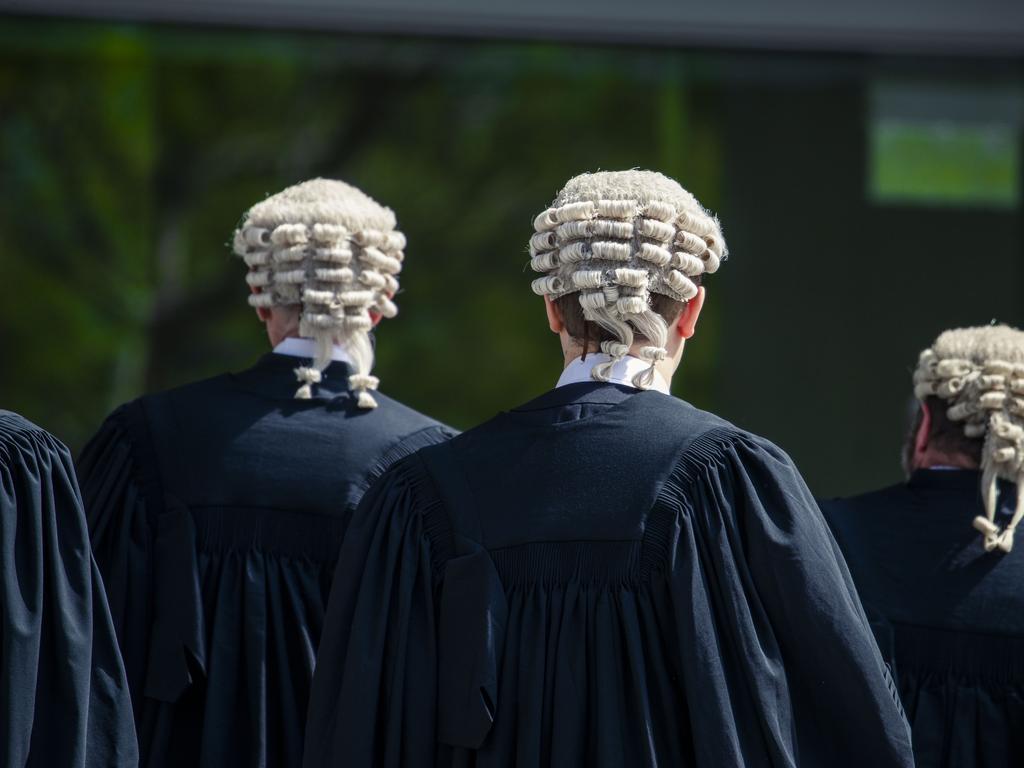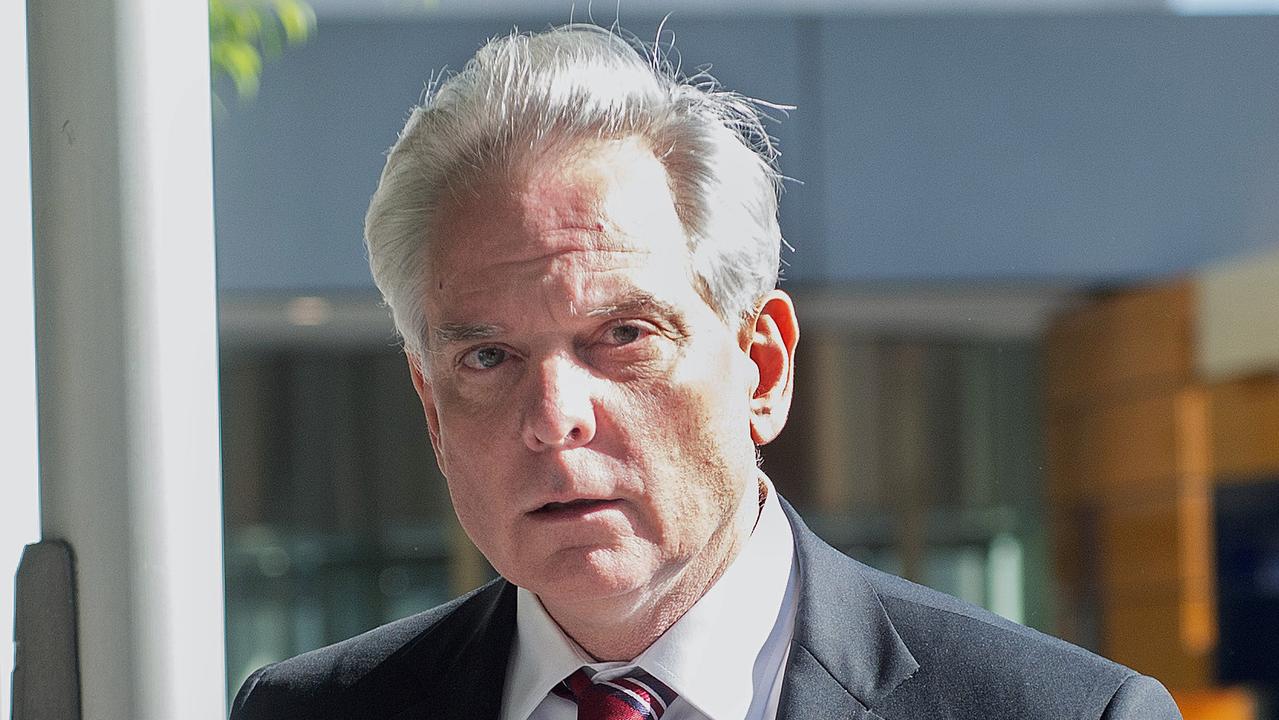Judiciary row taken to the highest law officer, Christian Porter
Attorney-General Christian Porter has been pulled into political infighting among some of Queensland’s top barristers.

Australia’s first law officer, Attorney-General Christian Porter, has been pulled into political infighting among some of Queensland’s top barristers, triggered by the actions of the state Bar association president to don a Labor T-shirt and campaign for an ALP candidate at the federal election.
Rebecca Treston QC was so pleased with her efforts in May she tweeted a photo of herself pressing Labor how-to-vote material on Home Affairs Minister Peter Dutton at a polling station in his tightly fought Brisbane seat.
The past president of the Queensland Bar Association, Christopher Hughes QC, has written to Mr Porter dissociating himself from Ms Treston, the first woman to head the organisation, and to assure Mr Porter it remained non-partisan.
The position is supposed to be apolitical because the president of the Bar has a formal role in advising the Queensland government on appointing judges and also helps draw up the list of barristers to be designated Queen’s Counsel, the most-travelled path to a seat on the bench.
The emergence of the row, during the annual jockeying by junior barristers for silk, will raise further questions about the claimed politicisation of the judiciary in Queensland.
Former premier Campbell Newman has said the state’s courts are stacked with Labor-appointed “left-wingers” who administer justice “from that perspective”.
Mr Dutton said: “The community doesn’t respect weak magistrates and judges, and neither do criminals.
“Appointing members of the Labor Party who are quasi-social workers to the judiciary is never going to end well.”
Ms Treston insisted in a written statement she had taken only a “few hours” to help friend Ali France campaign as the Labor candidate challenging Mr Dutton in his seat of Dickson.
The contest had been tipped to go down to the wire, but instead was won relatively comfortably by the senior LNP minister.
Stressing she had been acting in a “personal capacity”, Ms Treston said she was not then nor now a member of any political party.
“My role as the president of the Bar Association of Queensland, in which I seek to represent the interests of barristers across our state, is an important one,” she said.
“In that role I have developed strong working relationships with elected members of parliament of different sides of politics.
“Those relationships have helped me provide input from Queensland barristers on important legal issues. I will continue to do so.
“The role does not preclude me, however, from remaining supportive to my friends.”
Writing to Mr Porter in what he said was his personal capacity, Mr Hughes said he respected Ms Treston’s right to be involved in the political process, and while president of the Bar in 2017 his position was this should neither qualify nor disqualify a candidate for judicial appointment.
But it was important the Attorney-General understood that Ms Treston, in exercising her “obvious personal and political persuasions”, did not represent the barristers of Queensland.
Mr Hughes declined to be interviewed or to comment when approached this week.
Another senior advocate cited concern that Ms Treston’s open backing of a Labor candidate could affect her standing with Mr Porter when he was presiding over the planned merger of the Family and Federal Circuit courts, a hot issue for lawyers.
Mr Porter said the “privileged place” held by judges extended to senior members of legal associations and they needed to ensure they were free, and seen to be free, “from any situation which could give rise to a real or perceived conflict of interest with their professional roles”.
Queensland Law Society president Bill Potts, who sits with Ms Treston on the Judicial Appointments Advisory Panel that shortlists candidate judges and magistrates for the state attorney-general, who takes a recommendation to cabinet, said the decision should be taken out of the hands of politicians and vested in an independent judicial commission.





To join the conversation, please log in. Don't have an account? Register
Join the conversation, you are commenting as Logout